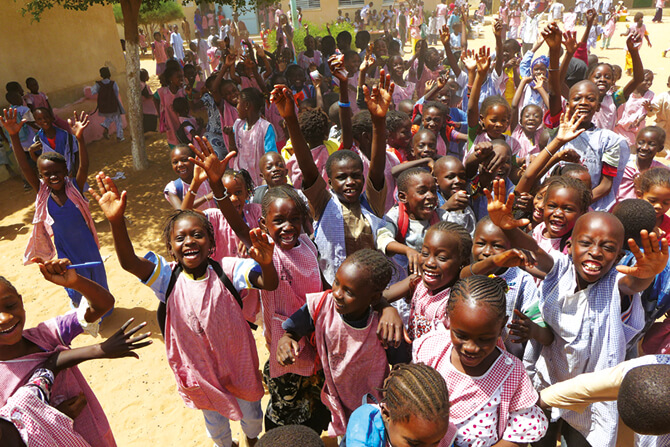
Curriculum
Transforming Reading Curricula in the Sahel
October 20, 2016
Reading is a fundamental skill, crucial to lifelong learning. Children who do not develop sustainable reading and writing skills in their early years are less likely to develop the other skills they need in school and throughout their education. This severely limits their economic, social, and individual development opportunities later on.
illustration by multiple
Yet, globally, about 250 million children of primary school age do not have basic literacy skills. About 130 million of these would have gone through lower primary education. The Sahel ranks among the lowest literacy rates, and the IBE answered the call.
By marco
20/10/ 2016
·
- Share
If you want to improve early reading skills, make sure that children are offered both high-quality reading curricula and high-quality teaching. This simple but transformative equation lies at the heart of the 2030 Vision of Literacy, promoted by UNESCO in 2015. Far too often, however, such vision statements remain only on paper, with little impact on policy and/or practice.
For instance, African governments acknowledge the importance of enabling children to acquire sustainable literacy in their early school grades. They recognize that literacy skills are cornerstones of national development. However, all too often they simply struggle to implement these ideas effectively through early reading and writing programs. Far too few teachers have the theoretical and practical knowledge to teach their students to read and write. Making the challenge even more complex is Africa’s vibrant multilingual reality and the shortage of opportunities for pre-primary education.
Many children miss out on opportunities to develop fundamental skills—and many have no chance to learn to read in their first language. The ripple effects of poor reading skills are dramatic: learners who make limited educational progress have limited opportunities for economic and social development throughout their lives. The bottom line? Social inequalities are established very early in life. The solution starts with the bare basics of education: reading and writing in the early grades, and strong early childhood care and education.

Students from École de Saté, Nagréongo, Burkina Faso (fieldwork, Early Reading Project).
The IBE has the critical expertise to address this urgent need for quality early reading and writing education and is already supporting governments’ efforts in three countries in the Sahel: Burkina Faso, Niger, and Senegal. They are now IBE’s partners in an ambitious capacity-building project, sponsored by the Global Partnership for Education: Improving Learning Outcomes in Early Grade Reading: Integration of Curriculum, Teaching, Learning Materials, and Assessment. This multiyear initiative aims to develop early-grade reading competency.
During 2015, an IBE team, coordinated by Amapola Alama, produced curricula documents, tailored and targeted to each country’s needs and context. The team also developed materials to support teacher training and to ensure effective implementation of the student curricula across the three partner countries.
The IBE held nine capacity-building workshops, three in each country, with impressive and concrete results:
- In Senegal, national orientations on teaching reading and writing in French as a second language, and a supporting document for instruction.
- In Niger, two teacher-training modules, covering grades 1 to 2 and 3 to 4 of primary school, with a matching guide for practitioners.
- In Burkina Faso, a guide and toolkit for teachers, and a revised training module.
Rather than asking stakeholders to grapple with somebody else’s idea of a problem that needs solving, this initiative challenges educators to investigate the conditions that pose challenges for early reading. More to the point, the teacher trainers and the teachers involved gain knowledge that they need to turn the teaching of early reading around, to significantly enhance curriculum alignment and to improve learning practices.
This achievement is unprecedented. Never before did teachers in these three countries have explicit training in reading instruction. It simply was not included in their teacher training curricula. Typically, teachers would enter the classroom with hardly any preparation to teach children how to read and write. Alama refers to the initiative as a “stimulant to mindset”. She has seen it generate remarkable change in teacher trainers and teachers, as well as in curriculum specialists. By producing the much-needed training materials and helping educators to integrate their knowledge, the initiative has empowered them to become primary agents of change.
More on the initiative in the future, as the IBE and its partners plan to take it to scale.
